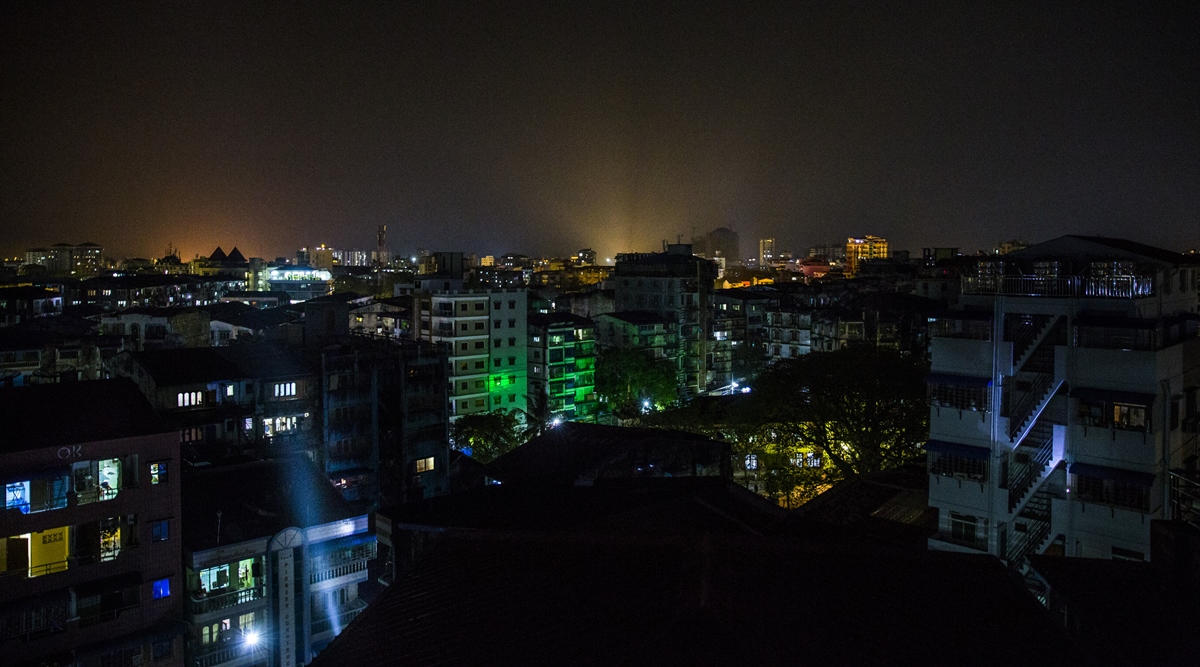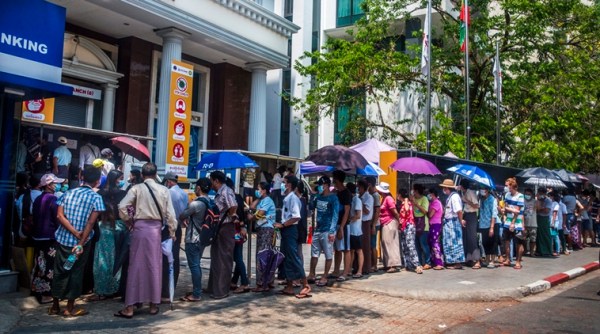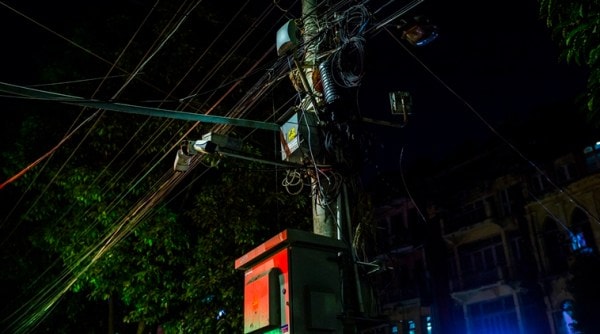 People use flashlights in a 'hashtag flash strike' campaign to protest the military coup in Yangon, Myanmar, April 11, 2021. (The New York Times)
People use flashlights in a 'hashtag flash strike' campaign to protest the military coup in Yangon, Myanmar, April 11, 2021. (The New York Times) Written by Richard C. Paddock
After the Myanmar military seized power in a Feb 1 coup, millions of people walked off their jobs in protest. Millions also began refusing to pay for electricity, an act of civil disobedience aimed at depriving the junta of a crucial source of revenue.
Experts doubt that these efforts alone can bring down the regime. But 11 months after the coup, the military appears so desperate for cash that its soldiers have begun acting as debt collectors.
For weeks, residents say, troops have been going door to door alongside power company workers to extract payments in major urban areas, including the nation’s two largest cities, Yangon and Mandalay.
The move is part of a wider, violent crackdown as the regime tries to crush street protests and the civil disobedience movement. Soldiers and the police have killed at least 1,466 civilians, including nearly 200 who died during torture at interrogation centers, according to the Assistance Association for Political Prisoners. At least 85 young protesters were shot in the head at demonstrations, the rights group said.
The coup and subsequent crackdown threw the nation’s economy into crisis as millions left their jobs in protest. Most have not returned.
 People form a line to withdraw cash from a bank in Yangon, Myanmar, March 22, 2021. (The New York Times)
People form a line to withdraw cash from a bank in Yangon, Myanmar, March 22, 2021. (The New York Times) The United Nations Development Program predicts that urban poverty rates will triple by early 2022, according to a December report based on a survey of 1,200 households.
Myanmar’s currency, the kyat, has plummeted since the coup to less than half its previous value, driving up prices for imports such as fuel and cooking oil.
 A surveilance camera on an electrical pole in Yangon, Myanmar, Feb 11, 2021. (The New York Times)
A surveilance camera on an electrical pole in Yangon, Myanmar, Feb 11, 2021. (The New York Times) Cash remains in short supply as people, lacking confidence in the banks, hoard kyat. Banks are no longer stocking even a handful of ATMs. Customers who want their money must obtain a token online or make an appointment by phone; both are almost impossible to do. Most people get cash from their accounts by transferring it to a broker and paying a commission of as much as 7%.
Some estimate the decline in electricity payments, as well as tax revenues and international development assistance, has cost the regime about one-third of the revenue that the previous government used to receive.
Myanmar’s shadow opposition government, the National Unity Government, urged the public to stop paying for electricity. In September, it said that 97% of people in Mandalay and 98% in Yangon had done so, costing the regime $1 billion by that point.
- The Indian Express website has been rated GREEN for its credibility and trustworthiness by Newsguard, a global service that rates news sources for their journalistic standards.

